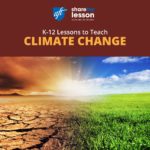In this one-hour virtual field trip hosted and led by Edward M. Kennedy Institute education staff, students in grades 4 through 8 learn about the challenges posed by climate change and the need to transition to a more sustainable and resilient economy. They will work together as Senators to build a bill that provides assistance and environmental justice for three distinct groups of people affected by climate change: frontline and vulnerable communities, fossil fuel workers, and young people. Register here.
George Washington’s Rules of Civility in the Age of COVID-19
In 1745, a young George Washington copied down a set of rules in his workbook. His aim was to learn how to properly conduct himself in society. He took his examples from the writings of a 16th-century Jesuit priest. The rules Washington recorded still resonate today as we learn how to navigate the health crisis the world is now facing while trying to maintain civil behavior.
How to Have a Civil Civic Conversation
Filmed on a Constituting America Winner Mentor Trip, five young ladies share their thoughts on how to agree to disagree and how to have a discussion and still remain friends. Through personal experience these students have learned a lifelong lesson. Enjoy learning their lessons while you discuss yours. When watching you will see each person’s name, title and number. The number is their age. The title is the contest area they won in the We the Future contest. Check out the website for the contest information. Who knows maybe soon you will see your talent on the Civics Renewal Network and Constituting America!
Civil Discourse and Difficult Decisions
Civil Discourse and Difficult Decisions is a national initiative of the federal courts that brings high school and college students into federal courthouses for legal proceedings that stem from situations in which law-abiding young people can find themselves. These court hearings (not mock trials) are realistic simulations that showcase jury deliberations in which all students and learning styles participate, using civil discourse skills. This activity includes: Reality Check Quiz and Discussion Starter; Civil Discourse Skill Building; Courtroom Simulation; and Reality Check Discussion.
Climate Change Lesson Plans & Resources

This curated collection serves as a great resource for educators to find a wide-range of relevant K-12 lessons on climate change, celebrating Earth Day or supporting young people as they continue to lead the conversation around the climate change crisis. What is weather? How does it impact people and the planet? Are there things we do that can address climate change?
Iroquois Council: Choosing Sides
In this simulation, elementary or middle school students convene as an Iroquois council in upstate New York, 1777. British agents are trying to convince Iroquois nations to take their side in the Revolutionary War.
Search Me
The lesson begins with students lined up in the front of the room. They are presented with a series of searches/seizures. If they believe the search/seizure was lawful, they step forward; if they believe it to be unlawful, they step backward. Next, students break into four groups. Each group is responsible for focusing on searches/seizures in a specific setting: at school, at home, in cars, or in public. The groups reconvene and present their ideas and findings to the rest of the class.
Brigham City v. Stuart (2006)
What constitutional standard must be used by police who enter a house without a warrant? This case summary shows how the Supreme Court answered that question in 2006.
Dolley Madison and Constitutional Thinking

This short video assesses the role played by Dolley Madison in promoting the experiment in republican government set in motion by the Constitution. She fully appreciated the 18th century idea of “manners”; i.e. how we treat each other is important. Professor Catherine Allgor contends that, when it came to manners, “women held the whole thing together” and Dolley’s contribution was invaluable as the young nation worked out constitutional precepts in practice.
Dolley Madison and Politics
This short video analyzes both the practical and the psychological contributions made by Dolley Madison to the young republic. Practically, Dolley’s weekly receptions in the drawing room of the White House became the only public gathering place in Washington, DC for doing the real business of politics. Psychologically, Dolley became, in the words of Professor Catherine Allgor, a “Republican Queen”, whose charm and charisma made her a symbol of America during the War of 1812.